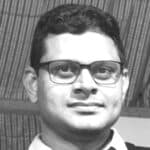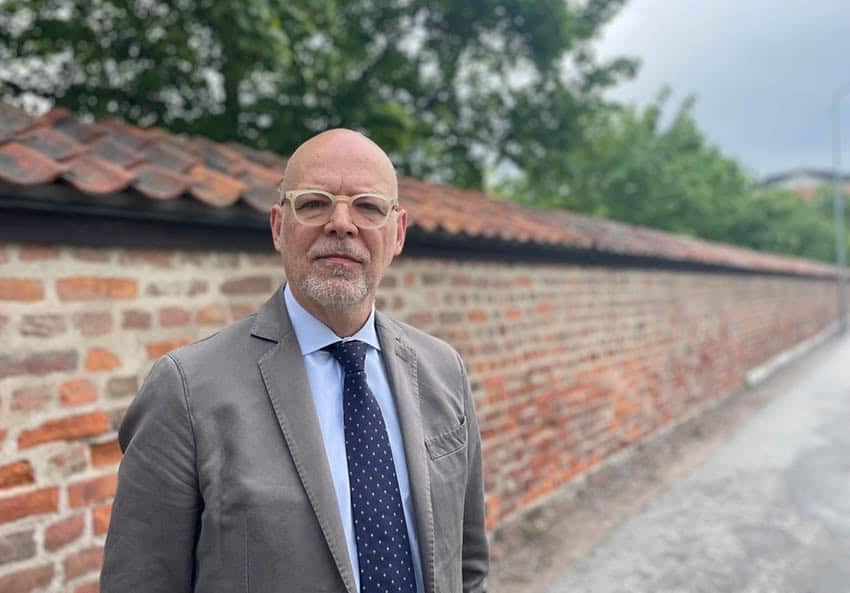In the past ten years, the number of postdocs has increased by 159 per cent. The collective group called ”other research and teaching staff with a doctorate”, i.e. those who are not lecturers, senior lecturers, professors or in career development positions, has increased by 45 per cent according to figures from the Swedish Higher Education Authority (UKÄ).
In a survey conducted at nine higher education institutions, (see box), SULF and NJF have analysed these people’s titles and positions and recorded over 20 different positions, both with regard to title and job content.
The survey shows that these positions are not included in the career development system or covered by the institutions’ appointments procedures at most of the institutions surveyed. This means that a researcher may not be able to get the teaching required to be able to qualify for a position as a senior lecturer or professor, as well as being denied the right to vote in collegiate bodies.

“An eye-opener for us as we went through the material is how unclear this is for the researchers themselves and how little opportunity they have to understand the system,” says SULF’s chief researcher Karin Åmossa.
Researchers’ titles, job content and rights differ both between different higher education institutions and within the same institution. This makes it unclear not only to the researchers themselves what career qualifications they have and what pathways forward they have, but also to recruiters and research funders.
Permanent employee – until external funding runs out
Grant Kemp at the Department of Biochemistry and Biophysics at Stockholm University is one of the people with the title “researcher”.

On the one hand, he says, he was lucky. After two years as a postdoc on a scholarship at Stockholm University and then a further two years employed as a postdoc, he found himself without a job, but then the head of a research group there had enough funding to employ him as a researcher in his project.
He has been allowed to vote in collegiate bodies and receives good support from the department to be able to develop academically, which he knows is not the reality for everyone with a research position. Now he is permanently employed, probably because he has been employed long enough according to the Employment Protection Act (LAS), but he is not really sure himself.
On the other hand, Kemp’s situation is very insecure, and he is stuck in the career dead end that the report shows that more and more people with research positions end up in.
Firstly, his permanent employment is dependent on the research group’s funding. If the money runs out, the employment ends.
Secondly, more than five years have passed since Grant Kemp defended his dissertation, so he can no longer apply for associate senior lectureships, the career development position available at higher education institutions, albeit to varying degrees (see Universitetsläraren’s previous article in Swedish and the report published in English by the Young Academy of Sweden).
“The Swedish system caught me off guard”
Although he feels he has the support of the head of his research group and of the department, he is unsure of how far that extends. If he asked, would he get enough teaching hours to be able to qualify as a docent? Would the department cover the necessary overhead costs if he applied for and received his own external grants?
“I think that these research positions are more a way of retaining experienced researchers than a system to help them to grow academically,” says Kemp. “The Swedish system has caught me a bit off guard. In part, the responsibility lies with me to find out how things work, but what rules apply also varies between institutions and departments.”
Forced to look abroad
Ramesh Vetukuri, a researcher at the Swedish University of Agricultural Sciences (SLU), made sure to obtain information in good time from people who were already in the system. Based on that knowledge, he made a five-year plan and ensured he acquired the credentials he needed. But even though he is now a docent, he also finds himself in an academic dead end in Sweden.

“At SLU, a docent cannot be promoted to a professorship, so I have to wait for several years until someone retires and a new position is advertised or move abroad. In India however, where I come from, my position would have been a career development post.”
Ramesh Vetukuri’s position is currently funded 20 per cent by his employment as docent, 50 per cent by his role as a development manager and 30 per cent by his own external funding.
“Universities should have clearer rules and communication about career paths and support junior researchers better so that they are not completely dependent on external funds,” says Vetukuri, who is also Chair of the Future Faculty at SLU, one of NJF’s local associations. “Politicians should ensure that there is more funding for permanent employment.”
“Include researchers in appointments procedures”
The measures that SULF and NJF propose in their report focus on creating a national system of career paths with clear and transparent requirements. They also want all higher education institutions to include researchers in their appointments procedures so that they are categorised as teachers and they thus have the right to assess students, have collegial influence and are covered by the teachers’ exemption in the Copyright Protection Act.

“We have identified the problems, so now we hope that we can sit around the table with the people who can make the changes,” says Katharina Herzog, a postdoc at Karolinska Institutet and Chair of NJF.


















